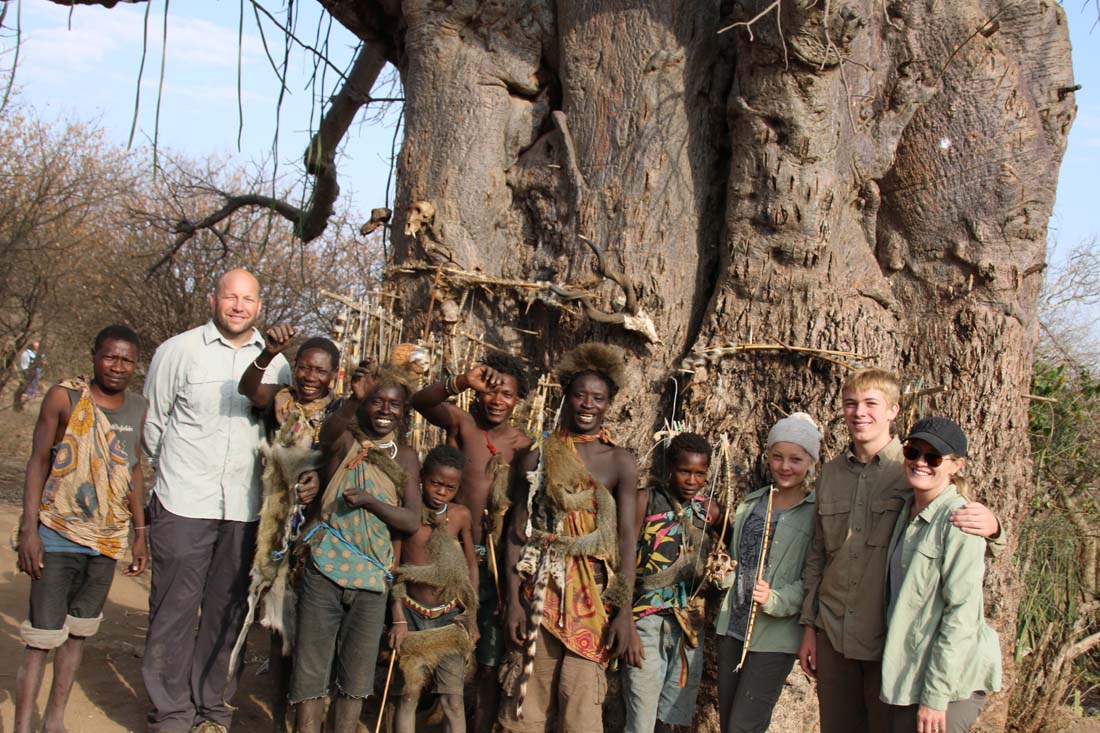 Adventuriety / Inspirietry
Adventuriety / Inspirietry
We got up very early this morning with the help of my now favotie alarm clock, although I would set my phone’s alarm and be up and ready to go by the time coffee arrived so that I could sit for a few minutes and enjoy the decadence of it all. My night had not been restful. It sounded like the wind was going to blow our tent away and my thoughts had thrashed around with the trees that bumped and scraped away at the roof and walls all night.
We were going to meet the Hadzabe and Datoga tribes today. It would be more driving as the Hadzabe or Hadza are hunter/gatherers and move around. We stumbled into the jeep at 5:30 am and drove about ten minutes to one of the shacks that we had passed the day before to pick up our local guide, Moody. He was very young, early twenties and stylishly dressed. He knew the general location of the tribe and spoke the language of words and clicks. He told us he had played with some of the Hadzabe kids growing up and they had taught him their language. There are only a handful of people in the world that speak the language that are not a part of the tribe.
Moody and Ashley near a Hadzabe hut
It took us an hour to get to where this group of Hadzabe was located. On the way, Moody taught us how to say hello to both the women and men. There are only about 900 Hadzabe left in the world scattered about the central Rift Valley near Lake Eyasi and neighboring Serengeti Plateau in groups of two or three famililes. They live entirely off the land and are allowed to hunt and eat any animal. They usually hunt for smaller animals like Lesser Galago, also called Bush Babies or birds, but if they kill something big like a buffalo, the group will relocate their camp.
The men and boys started off the day warming themselves by the fire and talking, telling stories and laughing before the morning hunt.
Boys kill a baboon as a rite of passage before they are worthy of marriage. They then wear the baboon hide as a symbol of their hunting skills. The man on the left is the chief’s brother and was an all around talented individual.
We watched him shoot a bush baby in a tree and then climb the tree to retrieve it and his arrow. He played an instrument and sang and was obviously a well liked leader in his family unit.
As soon as the morning hunt was over the men gathered around a fire, cooked and shared the morning’s spoils. They offered us a taste of the Bush Baby but we politely declined. We were advised not to eat their food since our bodies are not accustomed to it and most importantly as our guide explained, we would be taking a portion of the food that they need to survive.
There are many dogs living with the Hadzabe. They are used for hunting and in no way treated as pets. The dogs help the hunters track the animals and then they are rewarded with intestines at the camp fire.
We had fun trying our hunting skills out on rocks. Scott would be a good provider with a bow and arrow if needed while we would surely starve if I did the hunting.
The Hadzabe are beautiful people. They are warm, friendly and joyous. They have so little compared to what we live with and seem so content. The men appeared to enjoy our visit communicating with gestures and reenacting sounds of animals and showing the kids all kinds of things like the baboon skull that Ashley is holding in the picture. The women stayed in the background, only joining the men in dancing and singing and then going back to the huts. Unlike the Masai from the day before, they were selling nothing. Planet Africa, the safari operator that we booked through, suggests a monetary donation of around $20 to the chief. The Hadzabe usually trade with the nearby Datoga tribe for arrow tips, but can purchase them with cash as well.
The morning spent with the Hadzabe is one of my favorite memories from our trip to Tanzania. I watched my fifteen year old become totally engaged with these gentle people. He ran behind the hunters as they looked for breakfast and then later, as we stood watching the men sing and dance, he quietly handed me the camera and joined them. I wish for my children and myself some of the freedom that the Hadzabe people possess. It is a freedom of spirit that transcends the daily necessities of life that we all must deal with whether it’s hunting for breakfast or commuting to a job that is joyless, it is living in moments of happiness and peace and community.


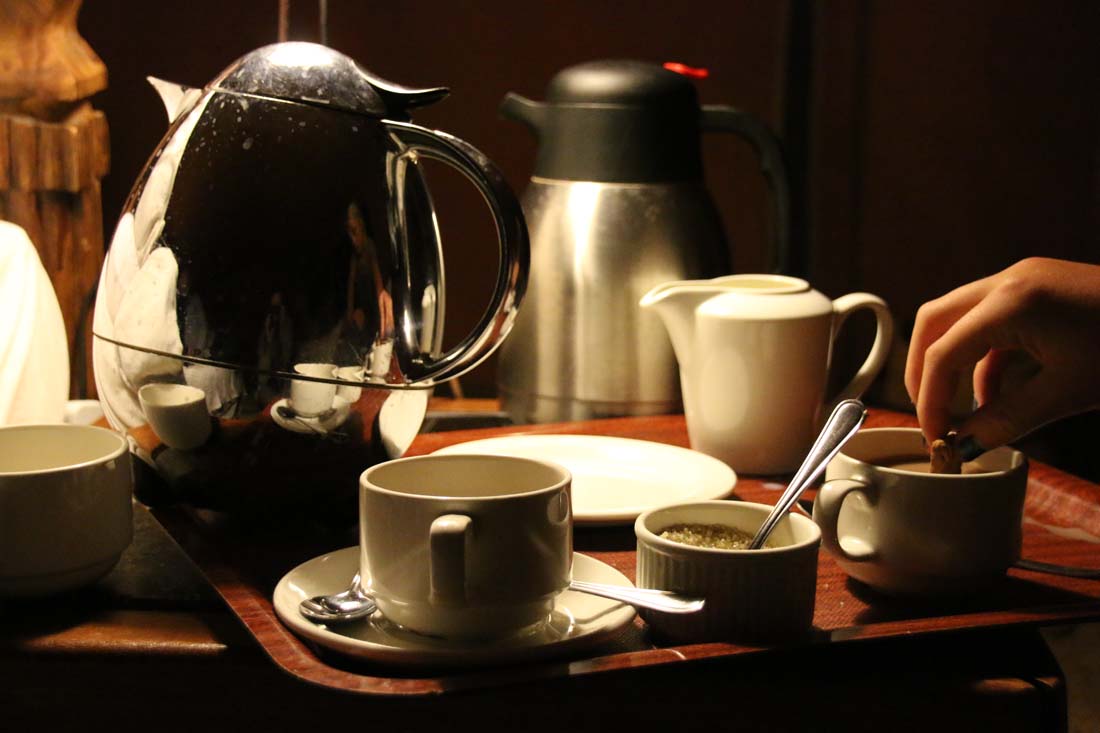
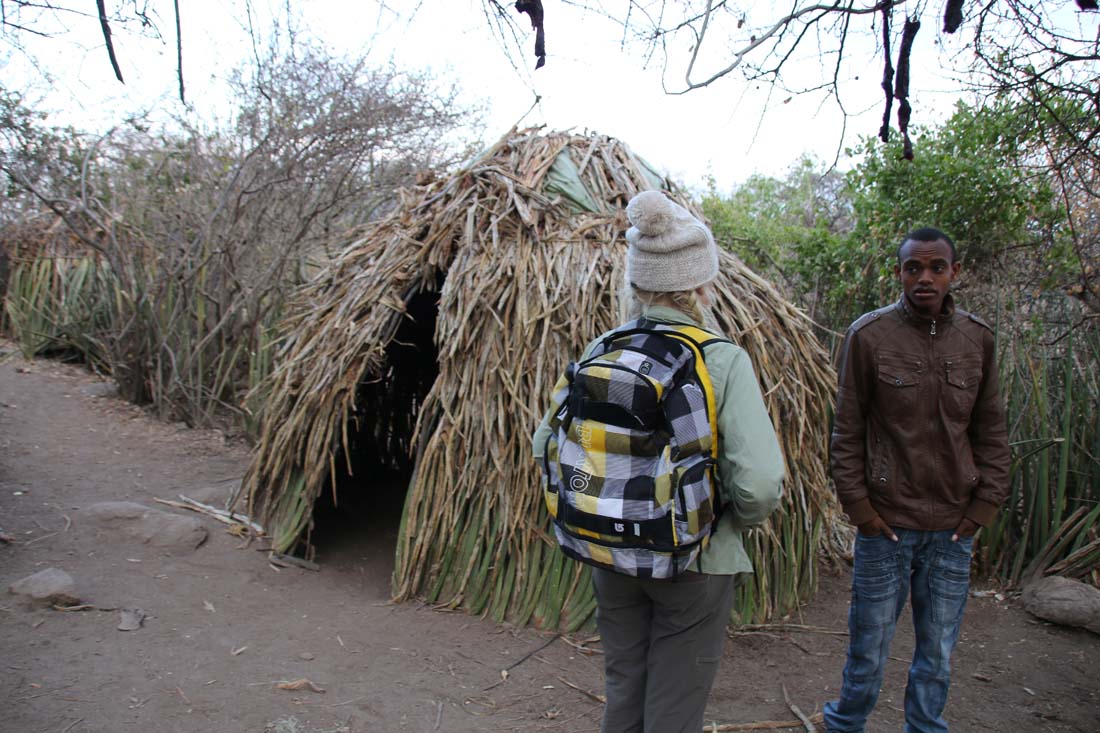
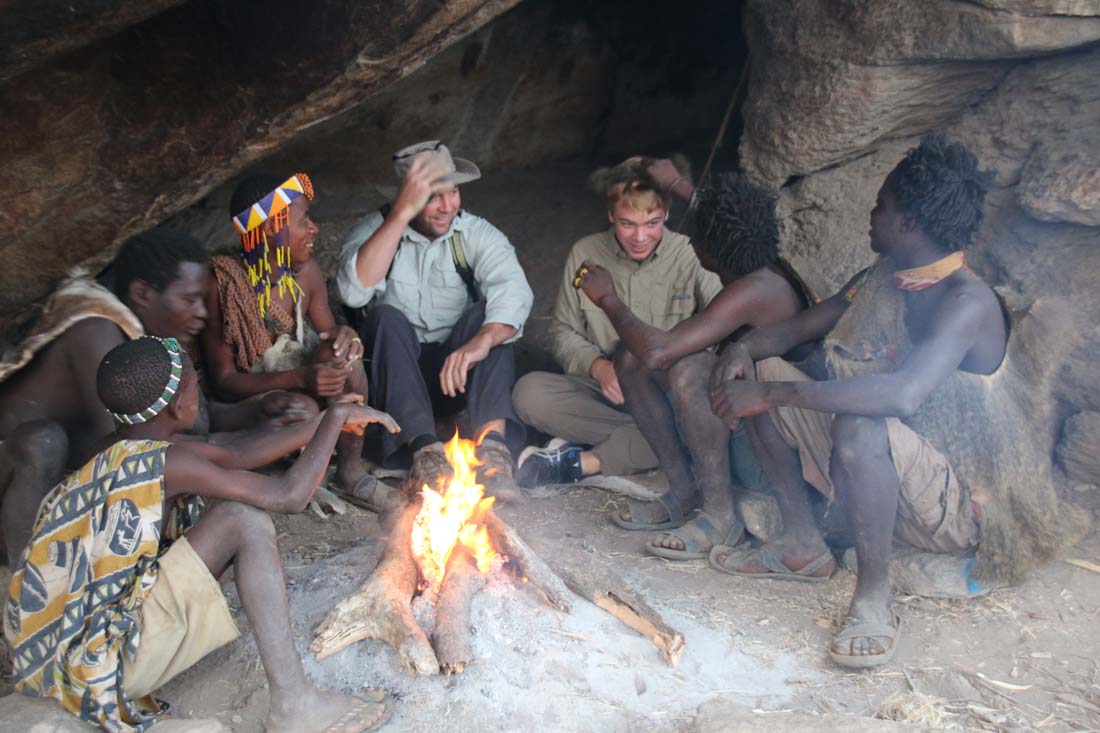
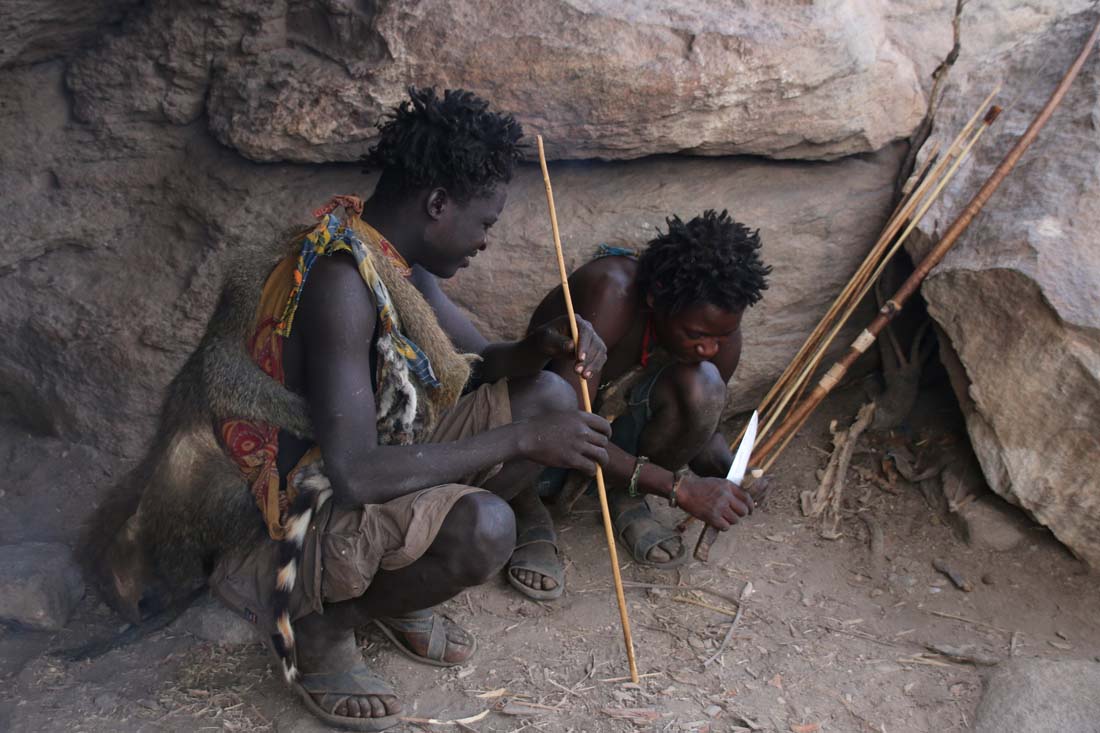
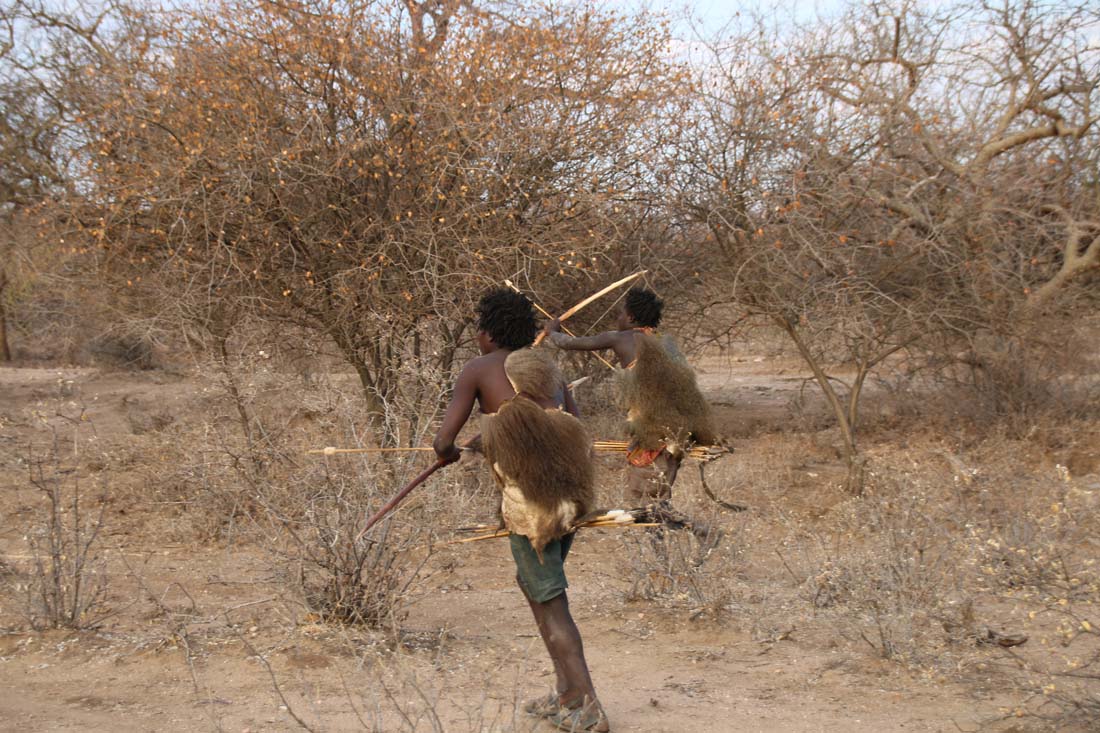
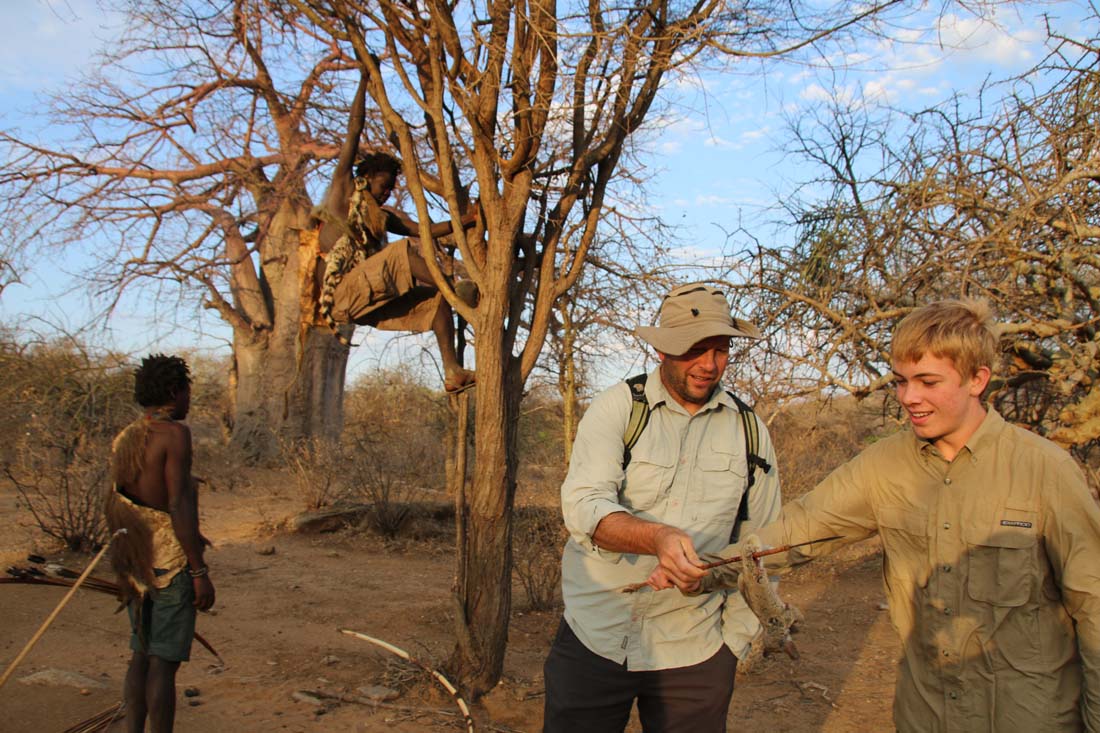
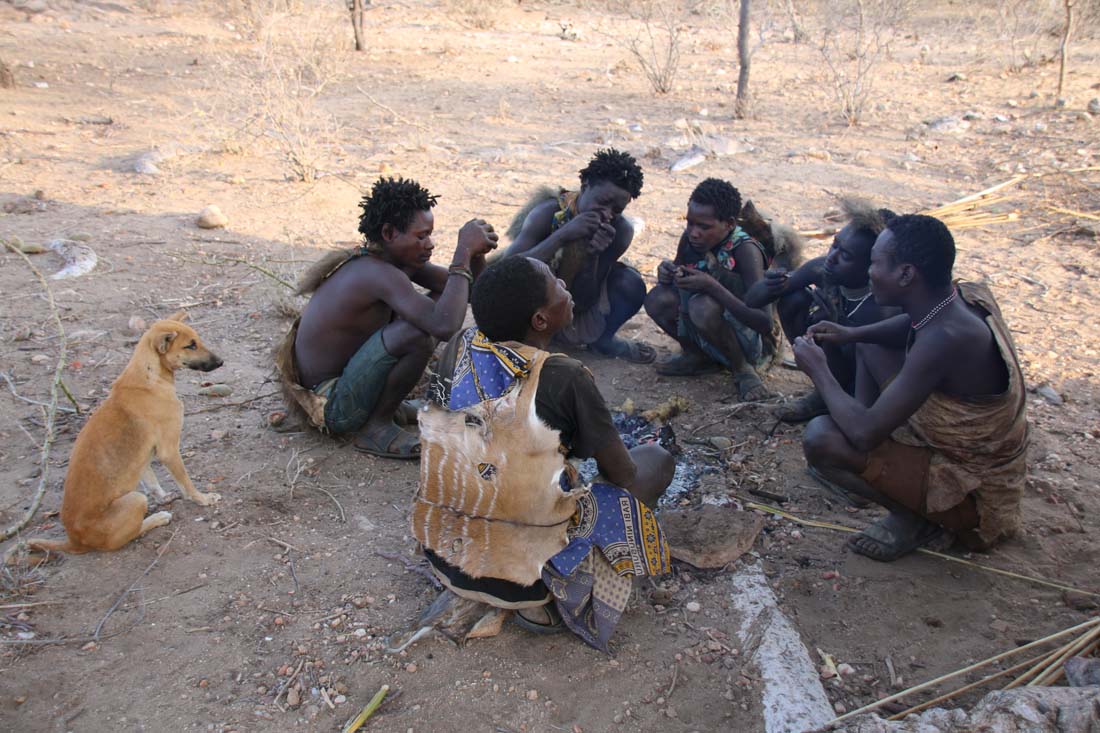
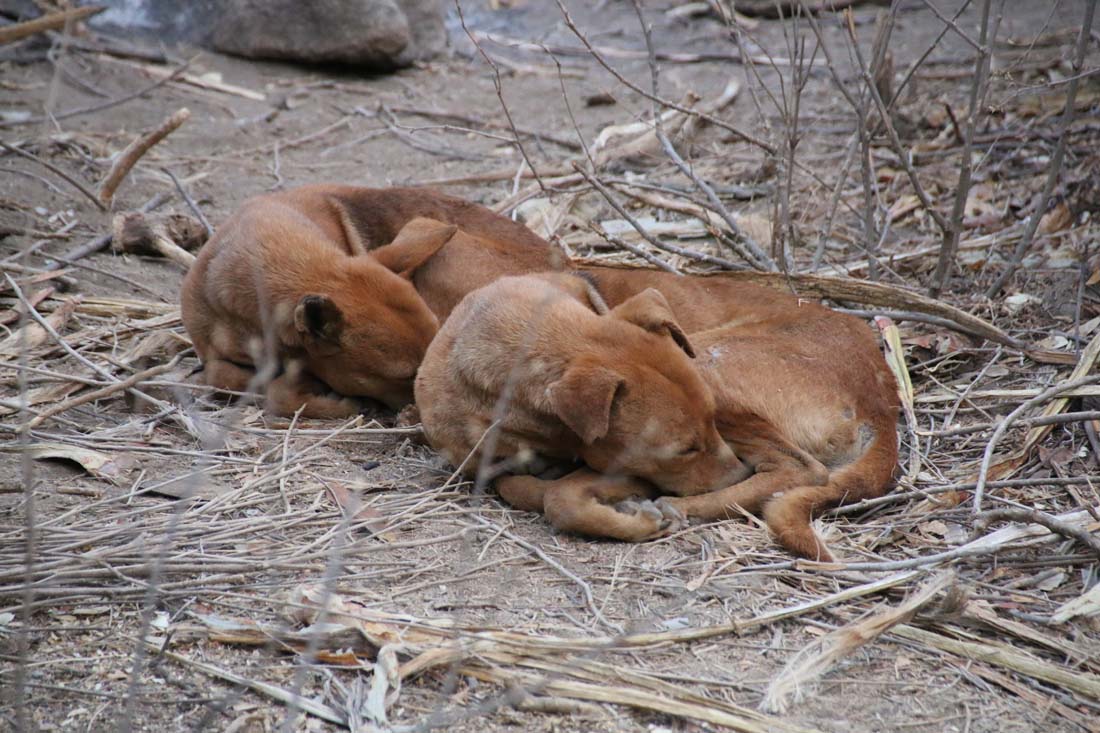
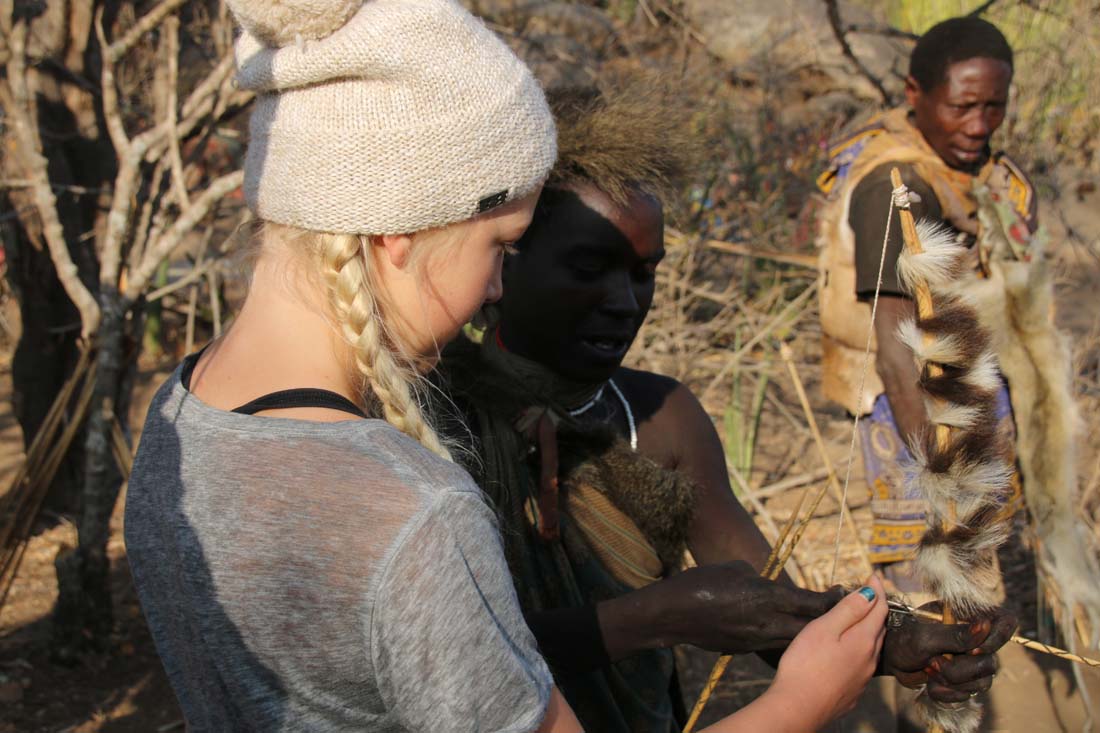
This brought tears to my eyes. So glad for your encounter with these people.
It was a beautiful experience. These people live in the moment, they are joyous and authentic and kind and alive. I felt blessed to be get to meet them.